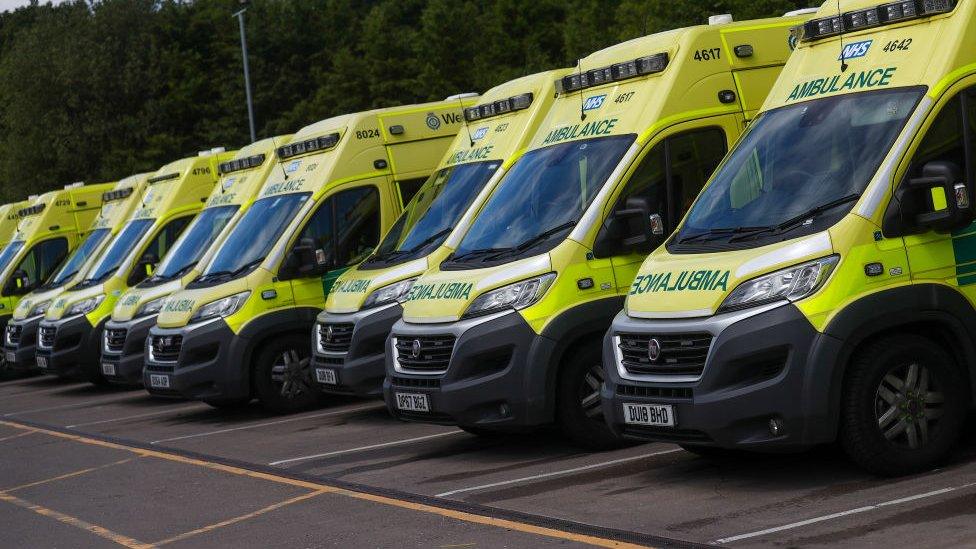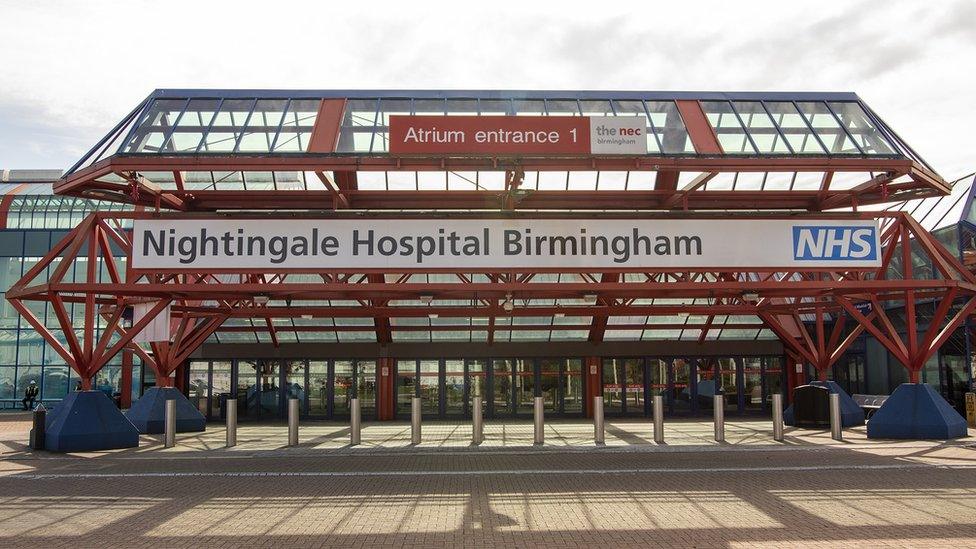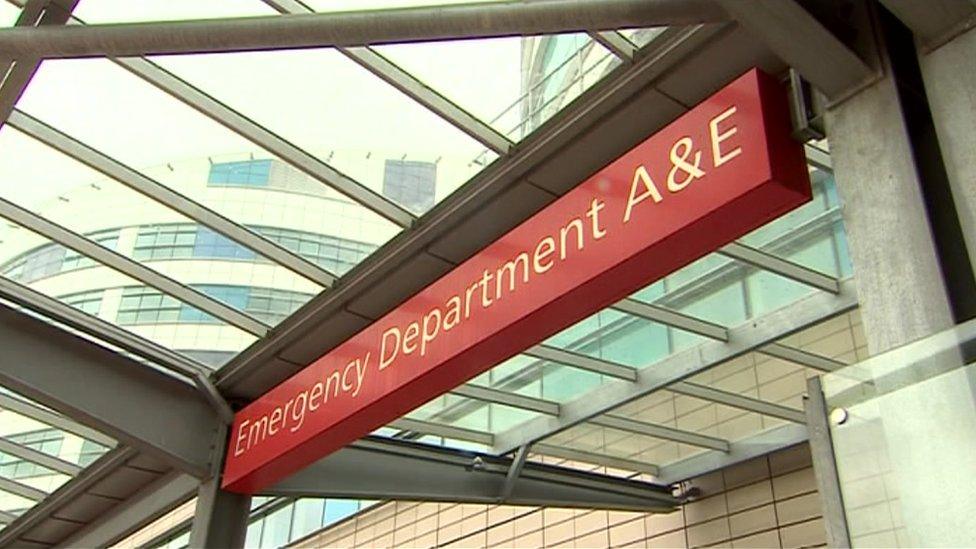Covid-19: Hundreds of Birmingham A&E patients may be turned away
- Published

Some ambulances have waited up to an hour to hand over patients at A&Es
Hundreds of patients who turn up to A&E departments in Birmingham may be turned away in a bid to protect key services, health bosses have said.
University Hospitals Birmingham NHS Trust said it was under huge pressure after a rise in Covid-19 patients.
Chief Operating Officer Jonathan Brotherton said it was now at a "tipping point" and would have to scale back some services.
The trust is expecting to be facing the challenges of coronavirus until 2023.
It has four hospitals - Good Hope, Heartlands, Queen Elizabeth and Solihull - and is the biggest hospital trust in England.
At a briefing on Thursday, it said Covid-19 cases had been gradually rising over the past six weeks from about 20 to 206, and were expected to increase further.

Birmingham's Nightingale hospital is on stand-by to deal with Covid-19 patients, but staff would need to be found from existing hospitals
The hospital trust said staff currently treated everyone who came into its A&Es, but those who did not need emergency care would now be turned away.
Ambulance waits
It estimated on a typical day, 25-30% of the 1,100 patients who walked into its A&Es did not need to be there.
Pressure on emergency care meant ambulances had also been having to wait longer, sometimes up to an hour, to handover patients.

Analysis by Phil Mackie, BBC News correspondent
The unprecedented step to turn people away from the trust's three A&Es - once they have been triaged and it has been determined that they don't need any treatment - has come at a crucial moment in the second wave of the outbreak.
The number of Covid-19 patients being treated by the trust is far lower than at the peak of the first wave, but back in March and April there were hardly any other patients being treated in its hospitals. Now the NHS is trying to clear through the backlog of people who need other treatments, so there is very little spare capacity.
Space is being freed up to create areas where patients can be safely off-loaded from ambulances and cared for. There is increasing concern that if the number of Covid admissions continues to rise then other elective surgery may have to be delayed.

Measures to tackle coronavirus - including bays being locked down, and extra cleaning - mean the trust's hospitals have fewer ICU beds available than normal capacity.

Patients will be turned away from the A&E units for the first time if staff decide they do not need emergency treatment
At the peak of the first wave of the virus in March and April, the hospital trust had 700 Covid-19 patients and had to double ICU capacity.
It said that was only possible as many other services were cut back or cancelled completely, leaving some wards empty.
The trust hopes cutting A&E numbers will free up resources to deal with both Covid-19 patients and others needing emergency treatment.
Non-urgent operations are also to be scaled back and Mr Brotherton said letters would be going out in the coming days to postpone procedures.

Follow BBC West Midlands on Facebook, external, Twitter, external and Instagram, external. Send your story ideas to: newsonline.westmidlands@bbc.co.uk , external